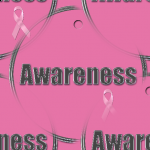 I’m happy to report that a new menopause treatment will most likely not be approved by the FDA. A panel of advisers to the Food and Drug Administration overwhelmingly voted against a Depomed drug called Gabapentin to treat hot flashes and other symptoms of menopause. Apparently, the benefits were heavily outweighed by the risks involved with this would be prescription menopause treatment.
I’m happy to report that a new menopause treatment will most likely not be approved by the FDA. A panel of advisers to the Food and Drug Administration overwhelmingly voted against a Depomed drug called Gabapentin to treat hot flashes and other symptoms of menopause. Apparently, the benefits were heavily outweighed by the risks involved with this would be prescription menopause treatment.
Drug makers have been experimenting with non-hormonal treatments for menopause ever since they lost considerable market share with HRT drugs once they were proven to increase the risk for breast cancer and heart disease.
The FDA panelists overwhelmingly recommended the FDA reject the use of generically known Gabapentin pointing out that three company studies failed to show a significant reduction in hot flashes over 12 weeks. Patients also experienced side effects including dizziness, fatigue and balance problems. Gabapentin already carries a warning label that it can increase the frequency of suicidal thoughts. The FDA often follows the advice of panelists although it is not required to do so.
Looking for a safe Menopause Treatment that works fast! Look no further, Menopause Relief Herb Pack is here.



